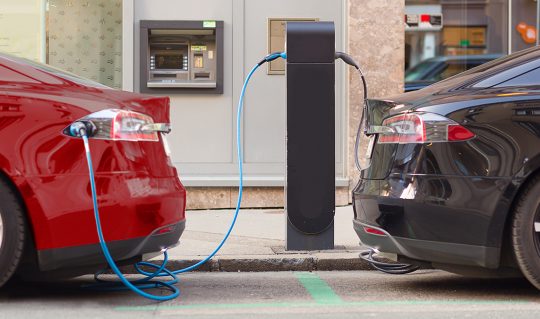Living off grid can be worth it for those who desire independence and self-sustainability. However, it requires significant planning, resources, and lifestyle changes.
Living off grid is an alternative lifestyle that is gaining popularity across the globe.
Essentially, it refers to living without reliance on public utilities such as electricity, water supply, gas, and sewage systems. Instead, people who choose to live off grid generate their own power, collect rainwater or drill wells for water, and manage their own waste systems.
They source their food locally or grow their own and aim for a self-sustaining lifestyle. Choosing to live off grid offers the benefits of independence, sustainability, and cost savings.
However, it comes with significant challenges, including limited access to resources, a steep upfront investment, and major lifestyle changes.
In this article, we’ll take a closer look at the pros and cons of living off grid and help you determine if it’s the right lifestyle for you.

Credit: valleyfoodstorage.com
Environmental Benefits Of Living Off-Grid

Living off-grid is a lifestyle choice that has been gaining traction in recent years. Apart from the obvious benefits of reduced reliance on public utilities, there are several environmental benefits that come with living off the grid. In this post, we will explore the benefits of living off-grid from an environmental standpoint.
Reducing Carbon Footprint
Living on-grid typically involves heavy reliance on utilities that rely on fossil fuels to generate energy. This, in turn, leads to high carbon emissions. By living off the grid, you reduce your energy consumption and carbon emissions, thus lowering your carbon footprint.
- Using renewable energy sources such as solar or wind energy can reduce your carbon footprint.
- Even small changes in your energy consumption habits such as turning off lights and electronics when not in use can make a significant impact on the environment.
Minimizing Land-Use Impact
Living off the grid often involves building in remote areas. As a result, you reduce your impact on land use and, therefore, minimize your ecological footprint.
- Off-grid living often involves building tiny homes or other small-scale dwellings, reducing the amount of cleared land.
- Living off the grid also typically involves using compost-based toilets or graywater systems that reduce water consumption and impact on the environment.
Reducing Waste And Pollution
Living off the grid can reduce waste and pollution since you are not relying on public utilities.
- By relying on renewable resources, you reduce the need for the large-scale extraction, transportation, and burning of fossil fuels which contribute to air and water pollution.
- Living off the grid can also encourage a shift towards a more minimalist lifestyle, leading to reduced waste and less consumption.
Encouraging Sustainability And Self-Sufficiency
Living off the grid promotes sustainability and self-sufficiency by providing an opportunity to build skills and knowledge in self-sufficient living.
- By growing your food and using renewable resources, you become more self-sufficient and less reliant on outside resources.
- Living off the grid also promotes sustainable building practices, such as the use of sustainable materials and the conservation of resources.
The benefits of living off the grid are numerous, and the environmental benefits are significant. By reducing your carbon footprint, minimizing land-use impact, reducing waste and pollution, and promoting sustainability and self-sufficiency, you can make a positive impact on the environment and live in harmony with nature.
Financial Benefits Of Living Off-Grid

Living off-grid has become a popular trend in recent years. This lifestyle means living without any connection to public utilities such as water supply, electricity, and gas. Some people opt to go off-grid to reduce their carbon footprint, while others want more freedom and independence.
However, a significant benefit of living off-grid is the financial advantages. Let’s take a look at how going off-grid can save you money and impact your quality of life.
Examine The Financial Advantages Of Living Off-Grid:
Living off-grid can be a cost-effective solution that benefits your finances and the environment. Here are some financial advantages of choosing to live off-grid:
- Lower utility bills: When you live off-grid, you generate your power, water, and heat. Therefore, you don’t have to pay monthly utility bills. You’ll benefit from free and infinitely available renewable sources of energy, such as wind and solar, which will save you thousands of dollars over time.
- No mortgage payments: Getting off the grid means you don’t need to buy a house connected to the grid. Instead, you can purchase smaller acres of land with lower costs. Additionally, you won’t have to pay property taxes or a mortgage.
- Reduced overall cost of living: Living off-grid means choosing a simpler, less complicated life. You’ll spend less on appliances and other things that require electricity or gas. Also, you will consume fewer resources and reduce your carbon footprint, something that can be genuinely satisfying.
These financial benefits have a real impact on your life and overall well-being. Being able to save money means more financial freedom, and that the money you make can be used to achieve other significant life goals such as travel or early retirement.
Besides, choosing to live off-grid offers unexpected benefits, such as living a more environmentally responsible life, ensuring food sustainability, and securing a better life quality.
Living off-grid might be worth considering if you want to improve your quality of life while saving money. It provides a unique opportunity to be self-sufficient, resourceful, and more connected to nature. We hope that this article has highlighted some of the benefits you can experience by opting to live off-grid.
Freedom And Self-Sufficiency
Living off grid can be a significant change for many people. However, the idea of achieving freedom and self-sufficiency can be an alluring prospect.
It’s a lifestyle that speaks to the idea of being self-reliant and self-sustainable, which can provide some unexpected benefits for those who choose this path.

Here are some of the benefits that come with freedom and self-sufficiency, and how they translate into other aspects of life beyond living off-grid:
The Freedom And Self-Sufficiency Of Living Off-Grid
Living off-grid allows you to create your own rules to live by without the restrictions of modern-day living. You’ll find that being in control of your own lifestyle can be both liberating and empowering. Below are some key points:
- Independence: Living off-grid means that you won’t be tied to the grid, which gives you control over how you generate your electricity, water supply, and waste disposal. You’ll be able to live without relying on external services, which can be freeing.
- Resourcefulness: To be self-sufficient requires you to become resourceful, and this is a skill that can be invaluable in life. You’ll find that you’re capable of solving problems more efficiently and creatively, which can also help you save money.
- Abundance of time: You will have more time to spend on yourself and your passions. Living off-grid means that you won’t have to work to pay bills that come with modern living. The freedom to choose how you spend your time can contribute to a healthier lifestyle.
Benefits That Translate To Other Areas Of Life
The skills and knowledge gained from living off-grid can be transferred to various other areas beyond just living off the grid. Here are some benefits:
- Financial freedom: The self-sufficiency gained from living off-grid can translate to financial freedom. Living this way could mean you save more money, pay off debts, and can work less while living more in line with your values.
- Sustainable living: The road to self-sufficiency necessarily requires a sustainable living approach. A sustainable lifestyle means living in harmony with nature, which can reduce stress and the negative environmental impact of our activities. This way of life, when applied in other areas, can lead to a healthier and more fulfilling life.
- Self-discovery: Living off-grid offers many opportunities to do things for yourself, which can help you better understand yourself. This self-discovery can lead to heightened self-confidence and a better understanding of how to tackle life’s challenges.
Living off-grid is not for everyone, but it is worth considering if you value independence, self-reliance, and a simpler life. Besides the obvious benefits that come with living this way, there are many hidden advantages that can make a significant difference in your life.
Mental And Physical Health Benefits Of Living Off-Grid
Living off the grid essentially means cutting oneself off from the urban grid and living in nature. For many, it may seem like an arduous task. Still, people worldwide are opting for this lifestyle shift, primarily because of the incredible benefits that it offers.

These advantages vary from person to person but one that overshadows the rest is the improvement in mental and physical health.
Less Exposure To Pollutants
Living off-grid means living amid nature, so it’s only natural that one would get lesser exposure to pollutants than their counterparts living in urban settings. Also, in an off-grid setting, people rely on renewable energy resources, so there’s no dependence on fossil fuels, which reduces pollution.
Fewer pollutants translate to health benefits such as:
- Reduced risk of respiratory illnesses
- Stronger immunity
- Better sleep quality
Increased Physical Activity
City life can be very sedentary, with people mostly confined to their desks or couches. Conversely, living off-grid requires a lot of physical exertion – from growing your food to chopping wood for warmth.
- Physical activity mitigates the risk of obesity, heart diseases, and certain cancers.
- Exercise releases endorphins that lead to better moods and stress relief.
- Physical activity enables better sleep quality.
Less Screen-Time
Technology is a double-edged sword. It has made our lives incredibly easy, but it has also led to an increase in screen-time, which comes with its own set of issues. Living off the grid means leaving behind the screen-life and engaging with nature and oneself.
- Reduced screen-time mitigates the risks associated with too much blue-light exposure.
- It helps reduce stress levels and thereby rates of anxiety and depression.
- It enables individuals to lead more mindful lives.
Living off-grid is not just a lifestyle choice; it’s a movement. It allows individuals to reconnect with nature and themselves and live lives with unprecedented simplicity. The result is not just a greater sense of satisfaction or self-realization, but it’s a positive impact on health and well-being, as explained above.
Frequently Asked Questions For Is Living Off Grid Worth It
What Does Living Off Grid Mean?
Living off the grid refers to living without public utilities such as electricity, water, gas, and sewage. It means you produce your own power, collect and purify your water, and manage your waste.
What Are The Benefits Of Living Off Grid?
Living off the grid can provide a sense of independence, self-sufficiency, and resilience. It can also reduce living expenses, improve environmental sustainability, and provide peace and quiet.
What Are The Challenges Of Living Off Grid?
Living off the grid requires significant initial cost, ongoing maintenance, and adaptation to lifestyle changes. It can also involve physical labor, isolation, and limited access to resources and services.
Can Anyone Live Off Grid?
Living off the grid requires a strong commitment, practical skills, and financial resources. It is not suitable for everyone, especially those with medical needs, mobility limitations, or dependents.
How Much Does It Cost To Live Off Grid?
The cost of living off the grid varies depending on the location, climate, resources, and desired lifestyle. It usually involves a substantial investment in renewable energy systems, water supply and treatment, and waste management, which can range from $10,000 to $100,000 or more.
Conclusion
Living off-grid is not just a lifestyle choice, it is a mindset and a commitment. It can provide a sense of self-sufficiency, a connection to nature, and a freedom from the demands of modern society. However, it is not a decision to be taken lightly.
It requires planning, resources, and adaptation to a different way of life. The benefits of living off-grid, such as reduced environmental impact and cost savings, are not immediate and require a long-term commitment. Additionally, there are potential challenges such as the lack of modern amenities and social isolation.
Ultimately, whether living off-grid is worth it depends on individual values, priorities, and resources. For those who are willing to embrace the lifestyle and its challenges, living off-grid can be a rewarding and fulfilling experience.

“My name is Leo Jacob, and I hold a Bachelor of Science degree with Honors in Applied Environmental Science and Sustainability from the University of the West of Scotland. Since childhood, I’ve been passionate about living an eco-friendly life. After completing my studies, I dedicated myself to finding simple ways to lead a more environmentally conscious lifestyle. I launched ecolifely.com to share my educational background and practical experiences with everyone, hoping to inspire others to join me in creating a greener, more sustainable world.”













Leave a Reply